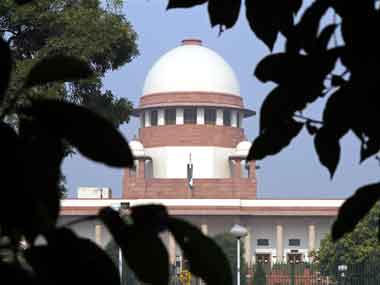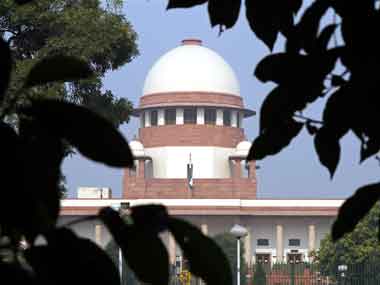Dear Prime Minister Narendra Modi, The Supreme Court, in its annual reports released in January 2017 on judicial administration 2015-16 and the lower courts in the country, has brought out once again the enormous pendency in the courts. But this is not new. It is only restatement of the fact. Increasing arrears of court cases has continued to cause anxiety since early years after Independence. Addressing a conference of state law ministers in 1959, the then prime minister Nehru, had expressed alarm at the slow pace of the wheels of justice. Justice K Subba Rao had observed in 1970 that “law’s delays is not a new problem. The basic problem is as old as the English wig”. On 30 July 1978 the then law minister, Shanti Bhushan, had expressed the hope that “the backlog of cases would be cleared in 5 years so that no case took more than a year to be decided in the high courts”. He had further stated that “the government is determined to create a situation where a case from trial court to final appellate court would take one year to be completed.” All these have remained Mungherilal ke sapne (just the pipe dreams). Eminent jurist and senior advocate Late Nani Palkhivala had rightly said, “I am not aware of any country in the world where litigation goes on for as long a period as in India… The law may or may not be an ass, but in India it is certainly a snail and our cases proceed at a pace which would be regarded unduly slow in a community of snails.” The National Commission to Review the Working of the Constitution (2002) had referred to the formidable arrears of court cases at various levels and stated: “particularly disturbing has been the chronic and recurrent theme of the near collapse of the judicial trial system, its delays and the mounting costs. The glorious uncertainties of the law have frustrated the aspirations for an equal, predictable and affordable justice.” With the pendency of nearly 3 crore cases in courts, there has been no improvement in the situation over the years. In fact, the situation has sharply deteriorated. In a democracy, peoples’ grievances are expected to receive timely attention from their elected representatives. However, this subject has continued to be neglected irrespective of which political party was in power at the centre and in the states. This is primarily because millions of harassed and dejected litigants are effectively faceless and unorganised, and are not considered important as a vote bank. For the first time in the history of the country, former chief justice of India, TS Thakur, was moved to tears, more than once, signifying his utter helplessness to deal with the problem. India must be the only democracy which saw such a shocking spectacle. [caption id=“attachment_3206590” align=“alignleft” width=“380”]  Supreme Court. Reuters[/caption] Ushering in good governance has become a favourite slogan of all political parties. Any well accepted definition of good governance includes institutional, procedural and legal guarantees for speedy dispensation of justice. This concept has been incorporated into the Virginia Declaration of Rights of 1776 and later into the Sixth Amendment of the Constitution of the United States of America. There is also a Federal Act of 1974 called “Speedy Trial Act” which establishes a set of time limits for carrying out the major stages of the trial. The right to speedy trial is recognised as a common law right flowing from Magna Carta. This is the accepted view in the United Kingdom, Canada and New Zealand. Under Article 14 of the International Convention of Civil and Political Rights, 1966, the right to a speedy trial is recognised. Article 3 of the European Convention of Human Rights also provides for it. The scope of Article 21 of the Constitution of India pertaining to protection of life and personal liberty has been interpreted widely by the Supreme Court to provide against delays in bringing the accused to trial and ensure speedy trial. The Court has also declared that a procedural law is void if it does not provide for speedy trial and that speedy trial is a component of personal liberty. In spite of this enunciation, this right has continued to be neglected. Sir, you have brought home the power of tremendous personal political clout and popular support enjoyed by a leader of a non-Congress party, for the first time in the country. In fact, your coming to power has seen the very unusual combination of presidential and parliamentary systems operating together. However, there are legitimate apprehensions that, as in the Indira Gandhi regime, forces of majoritarianism may come into play, leading to weakening of institutions vital for strengthening and sustaining democracy. In such a situation, the institution of judiciary must not be weakened in any way. Success of democracy lies in institutionalised system of checks and balances. In this context, it will be pertinent to recall some significant judgements of the Supreme Court of India which were responsible for the survival of not just the democracy but of the Constitution itself during the notorious Emergency (1975-77). These included, among others, Kesavananda Bharati case, Bank Nationalisation case, Privy Purses case and Minerva Mills case. In spite of the shocking majority judgment of the Supreme Court upholding the suspension of rights under Articles 19 and 21 of the Constitution, the dissenting judgment of Justice HR Khanna in ADM Jabalpur vs Shukla case, helped in sustaining the confidence of the beleaguered nation. Justice Khanna had underlined that “The State has got no power to deprive a person of his life or personal liberty without the authority of law. That is the essential postulate and basic assumption of the rule of law in every civilized society.” The concept of basic structure of the Constitution enunciated by the Supreme Court during the period has been invaluable for sustenance of democracy, secularism and the rule of law in the country. The Supreme Court has also laid down that a procedure prescribed by any law must be reasonable, fair and just. In Bommai and other cases, the Court has declared that even orders of the President of India must conform to the tenets of the Constitution and are liable to be scrutinised by the Court. It must be underlined that the relationship between the judiciary and the executive, as visualised by the scheme of the Constitution of India, has to be inevitably adversarial. As well-known Justice Frankfurter of the United States Supreme Court had stated: “The court has no reason for existence if it merely reflects the pressures of the day.” It will be foolhardy to try to convert the judiciary into a “committed judiciary”, as was attempted during the Indira Gandhi regime. If there is one lesson of the dreadful years of Emergency which must never be forgotten it is that judiciary’s independence must not be compromised in any way. It appears that the tussle between the government and the judiciary on this critical issue has been largely responsible for the delays in appointments of judges of the high courts and the Supreme Court, transfers of high court judges, and the central government turning a deaf ear to the plea of the judiciary for larger budgetary provisions to meet its requirements. The problem of arrears has been examined by a number of committees and commissions, including parliamentary committees, over the years. They have unanimously recommended appointment of more judges, depending on the period which is to be specified for clearance of arrears and disposal of new cases. All that is wanting is the political will to announce a time bound programme to address the issues. Whatever rigorous tests are applied, cost benefit analysis of additional expenditure on judiciary would bring out that this expenditure would give handsome returns. Sir, some of the initiatives taken by you have become unduly, and often undeservedly, controversial and divisive. But, taking time-bound steps for eradication of the huge arrears in court cases will, I am sure, receive unanimous support in the country from all well meaning and informed sections of society and the political parties. I would earnestly urge you to announce that the arrears of court cases would be wiped out in a period of 3 years and for this purpose all necessary infrastructure and manpower will be provided. I would further suggest that the central government should bear the entire cost of providing requisite infrastructure to the courts all over the country. The recurring revenue expenditure by way of appointment of judges and staff etc. could be shared by the central and state governments with the central government bearing, for a period of ten years, larger share in poor states. Sir, you have laid down the eminent goal of less government and better governance. Your other commitment of sabka saath, sabka vikas, (taking everyone along and inclusive development) is evocative and has caught the imagination of the people. If these pldges are to be translated in reality, I would urge that an announcement as above be made and steps taken to bring down the arrears of court cases in a period of three years. There can be no better gift to the citizens of India than such an announcement. This can be your lasting legacy. With best regards, Madhav Godbole, a concerned citizen (The writer is former union home secretary and secretary, justice. He is the author of, among other books, Judiciary and Governance in India (2008) and Secularism—India At A Crossroads (2016).)
The Supreme Court, in its annual reports released in January 2017 on judicial administration 2015-16 and the lower courts in the country, has brought out once again the enormous pendency in the courts. But this is not new. It is only restatement of the fact
Advertisement
End of Article


)

)
)
)
)
)
)
)
)



